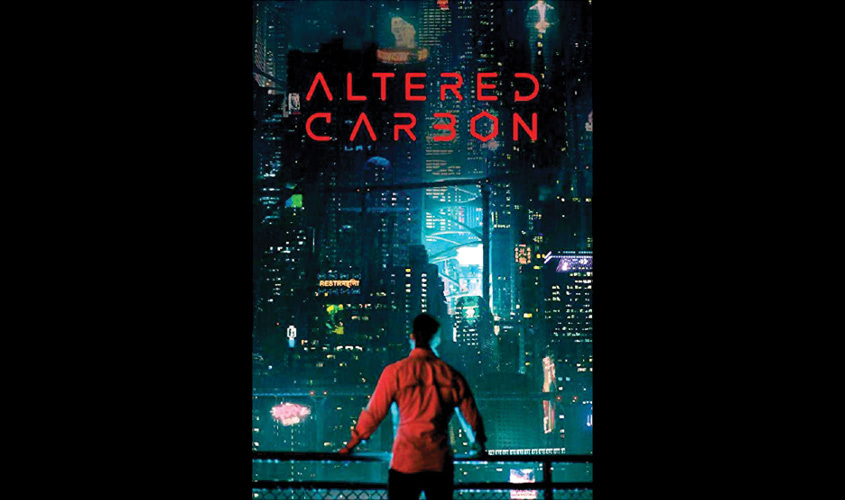Altered Carbon has just returned with an eight-episode second season, set in the early 25th century, three decades after the events of first season. For the uninitiated, the sci-fi series is set in a future wherein human consciousness is being digitized and stored in devices called stacks, thereby allowing it to be transferred from one body to another (sleeves). The richer you are, the better sleeve you can buy for yourself depending on your need—pleasure, combat, or anything else that you desire. Also, you can have your consciousness backed up on remote servers just in case someone tries to damage your stack. So, practically, the richest of the lot actually enjoy an immortality of sorts. Owing to their Methuselah-like longevity, they are referred to as ‘Meths’.
In the second season of Altered Carbon, the story’s protagonist Takeshi Kovacs, the last of the Envoys (a rebel group defeated in an uprising against the new world order), who is now a fugitive on the run, gets transferred to a new sleeve equipped with next level combat abilities. Now, Kovacs was essayed by four different actors in the first season—Joel Kinnaman, Will Yun Lee, Byron Mann, and Morgan Gao, with Kinnaman getting the maximum screen time. With Kovacs getting decanted into the new sleeve this season, Anthony Mackie fills in Kinnaman’s shoes but not before it’s briefly essayed by the South Korean singer and actress Jihae Kim. This racial and gender fluidity that Altered Carbon offers is certainly the most fascinating aspect of the Netflix series.
Created by Laeta Kalogridis, Altered Carbon is based on the 2002 novel of the same name by Richard K. Morgan. The series is rife with literary as well as cultural references—one of the most obvious being an AI character based on none other than Edgar Allan Poe. In many ways, Altered Carbon can be seen as a web extension of the neo-noir world of Ridley Scott’s 1982 seminal sci-fi work Blade Runner and its 2017 sequel by Denis Villeneuve, Blade Runner 2049. The series’ first season which came out in 2018 oozed with cyberpunk detail and easily proved to be the most intoxicating and cerebral stuff available on the web at the time. Although a lot has happened in the web space over the last couple of years there is not much that comes close to Altered Carbon in terms of what it offers in the sci-fi space.
Whenever one talks about the human race, the thought of mortality automatically comes to mind. Perhaps, that’s pushes the human race to try and uphold the notions of morality. But in a futuristic world where the humans have conquered even death, does the question of morality even arise? And, having possessed the gift of immortality, can one really escape the sense of guilt? Well, the answer comes from an aging character who tells Kovacs, “Immortality means an eternity of living with what we have done. I have lived with enough regret. Haven’t you?” Altered Carbon is not just about fancy gadgets and cutting edge visual effects but it also serves a powerful critique on materialism, class divide, and morality. The series endeavors to make us question the very meaning of life and what it means to be human. While not as explosive as the freshman effort, the second season of Altered Carbon has enough ammunition to keep one hooked.

